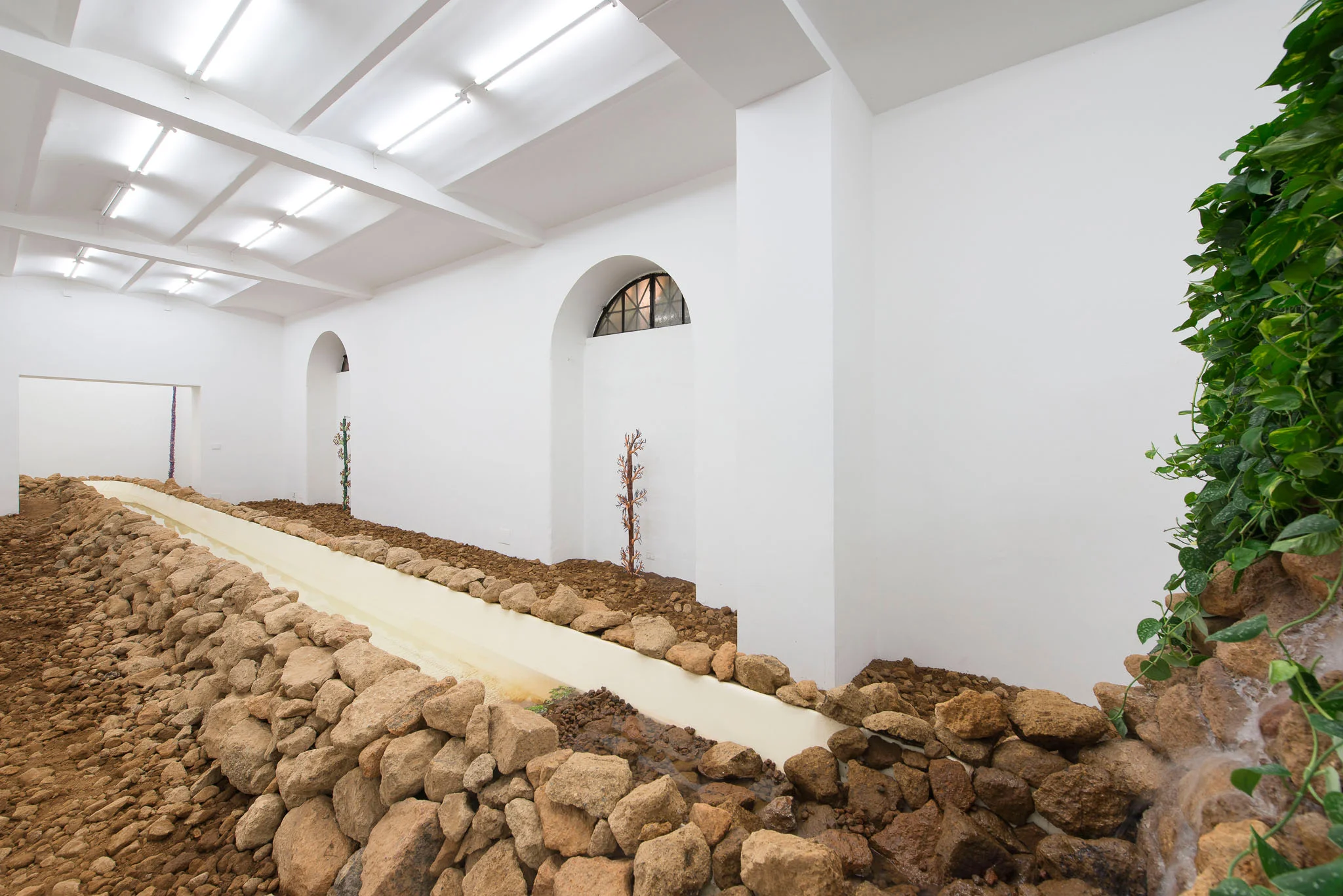Squid Dinner by Giovanni Vetere
In 1964, Jacques Yves Cousteau conceived the theory of the Homo Aquaticus, describing a future evolution of the human species capable of living underwater. Squid Dinner invites anyone who accepts the risks and dangers of entering an unfamiliar landscape and requires the spectator to become aware of his own abilities of adaptation. Curiosity and mindfulness are necessary during this journey in which water runs its course in a rocky desert. By culminating in the actual demonstration of Cousteau’s theories, utopia is abandoned in favour of a forthcoming reality.
“A social construct, such as dinner, can become a performative ritual able to transmit core values of society and implant beliefs and customs such as religion, patriarchy, and social hierarchy.”
Squid Dinner, becomes agentive insofar as it enacts change in the world and reflects on pressing political, social and scientific issues. How, then, can performance embody ecological awareness?
Squid Dinner presents a concept of nature that undermines traditional aesthetic notions of ‘the sublime.’ While the power of nature was perceived from a safe distance in the mind of the viewer, today, in the face of global climate shifts, there is no safe distance from which to view nature. Giovanni Vetere’s practice directly puts to the test the public’s awareness of the environment and their ability to adapt to new climates. The exhibition challenges the public to embrace an unusual landscape, triggering tension between their ability to adapt and their willingness to do so. While provoking their state of sensorial awareness, the exhibition compels the public to discover a new meaning of adaptation in respect to the natural environment.
The flawed and corrupt politicisation of science distorts man’s relationship with his environment, endangering all living organisms that result from the infinitely complex negotiation between their genetic code and the surrounding ecosystem. Entering the post-truth era, where fact is all too easily perceived as fiction and fiction as fact, Squid Dinner oscillates between imagination and reality. By materialising a vision of the symbiosis of man and nature, the performance examines the intersection of “myth” and “science” and the thin line that divides them.
Opposing the mechanised vision of singularity, the future speciation of man poses itself as remarkably realistic. Adhering to this posthumanist dialectic, if our biological makeup is defined by our complex relationship with the environment4, will we evolve according to environmental events? Will organic transhumanism, or rather, the idea of self-enhancement through biological means become a viable future?
Investigating the balances in the relationship between man and nature, the exhibition aims to engender a sense of mutability of the human race and, as the rising sea levels threaten human civilisation, life under water no longer presents itself as a inevitable fate for the human race but rather as an aquatic Arcadia.












